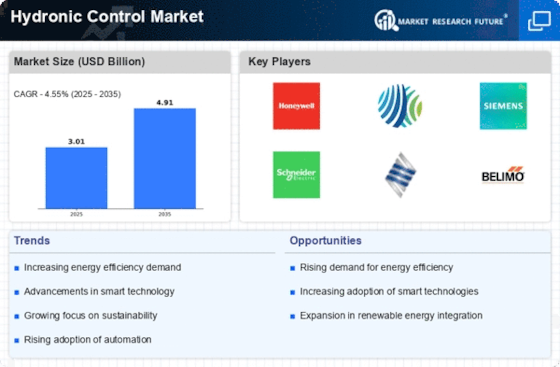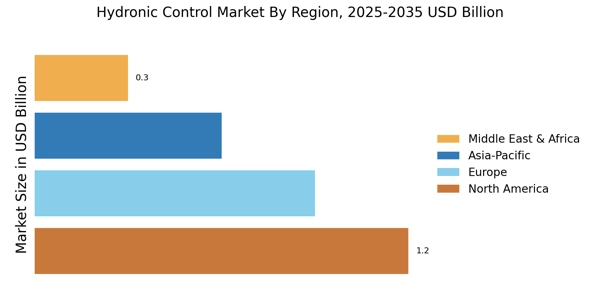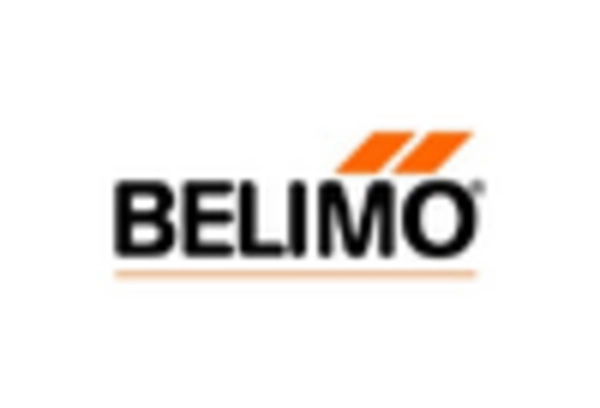Focus on Sustainability
Sustainability has emerged as a pivotal driver in the Hydronic Control Market. With increasing awareness of environmental issues, there is a strong push towards energy-efficient heating and cooling solutions. Hydronic systems, known for their ability to utilize renewable energy sources, are gaining traction among consumers and businesses alike. Market data indicates that the demand for sustainable hydronic solutions is expected to grow by 30% in the coming years. This shift is prompting manufacturers to innovate and offer products that not only meet regulatory standards but also appeal to eco-conscious consumers. Consequently, sustainability is reshaping the competitive landscape of the hydronic control market.
Advancements in Automation
Advancements in automation technology are significantly influencing the Hydronic Control Market. Automated systems allow for precise control of temperature and flow rates, leading to enhanced efficiency and reduced energy consumption. Recent studies suggest that automated hydronic systems can achieve energy savings of up to 40% compared to traditional systems. This efficiency not only lowers operational costs but also contributes to a reduced carbon footprint. As automation technology continues to evolve, manufacturers are likely to incorporate more sophisticated features into their hydronic control solutions, thereby attracting a broader customer base and driving market expansion.
Increasing Consumer Awareness
Increasing consumer awareness regarding energy efficiency and comfort is significantly impacting the Hydronic Control Market. As individuals become more informed about the benefits of hydronic systems, including their ability to provide consistent heating and cooling, demand is expected to rise. Surveys indicate that over 60% of consumers prioritize energy-efficient solutions when making purchasing decisions. This shift in consumer behavior is prompting manufacturers to enhance their marketing strategies and product offerings to meet these expectations. As a result, the hydronic control market is likely to experience robust growth driven by informed consumer choices.
Rising Construction Activities
The resurgence of construction activities across various sectors is a key driver for the Hydronic Control Market. As new residential and commercial buildings are constructed, the demand for efficient heating and cooling systems is on the rise. Data indicates that the construction sector is expected to grow by 5% annually, leading to increased installations of hydronic systems. This trend is particularly evident in regions where energy efficiency regulations are becoming more stringent. Consequently, builders and developers are increasingly opting for hydronic solutions, which are perceived as more efficient and environmentally friendly, thus propelling market growth.
Integration of Smart Technologies
The integration of smart technologies into the Hydronic Control Market is transforming traditional heating and cooling systems. Smart thermostats, sensors, and IoT devices enable real-time monitoring and control, enhancing energy efficiency and user comfort. According to recent data, the adoption of smart technologies in hydronic systems is projected to increase by 25% over the next five years. This trend not only reduces operational costs but also aligns with the growing consumer demand for intelligent home solutions. As a result, manufacturers are increasingly investing in R&D to develop advanced hydronic control systems that incorporate these technologies, thereby driving market growth.
.png)

















